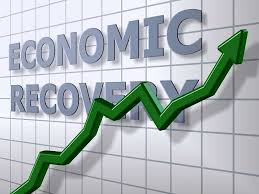Following Ghana’s 2024 general elections and the emergence of a new administration, the 2025 National Budget serves not just as a fiscal policy tool, but also as a critical litmus test for renewed leadership. With the subject “Resetting the Economy for the Ghana We Want,” the budget aims to address the lingering economic crisis characterized by inflation, debt stress and social vulnerability.
The budget signals the government’s response to citizens’ increasing calls for economic equity, employment opportunities, and transparent governance. Noteworthy, Citizens are no longer observers as they are actively engaged and demanding for inclusive development and fiscal accountability. The critical question is now whether the budget represents a genuine shift toward sustainable recovery and equity, or whether it threads a delicate fiscal path that risks further economic and political instability?
Revenue Mobilisation: Easing Burdens or Just Shifting Pressure?
The 2025 budget projects GH₵224.9 billion in total revenue and grants, representing 16.1% of GDP; a move signaling a shift from external borrowing to increased self-reliance. Non-oil taxes are estimated to contribute GH₵181.6 billion (13% of GDP), while oil revenue is estimated to be GH₵16.5 billion, with an additional GH₵16.2 billion from non-tax sources and GH₵7.9 billion from other streams.
What does this mean for the average Ghanaian? For starters, the budget contains welcome tax reliefs, such as elimination of the COVID-19 levy, the emissions levy, the betting tax, and the unpopular E-levy. The decoupling of the NHIL and GETFund, together with a reduced effective VAT rate, provides much-needed relief to both households and small businesses grappling with inflation and economic pressures.
These reforms indicate an aim to reduce the financial burden on citizens while encouraging tax compliance. However, concern remains about the sustainability of these measures, Without comprehensive tax administration reform, broader inclusion in the tax net, and effective plugging of revenue leakages, there is a risk of reverting to debt dependence or reinstating taxes in alternative forms.
Public Spending: Service Delivery or Deepening Debt?
Total projected expenditure stands at GH₵268.8 billion amounting to 19.2% of GDP. However, this figure overshoots projected revenue by GH₵43.8 billion, resulting in a 3.1% budget deficit. At first look, these figures appear to represent a government determined to keep the economy and public services afloat. The state has set aside GH₵76.6 billion for compensation of employees, reiterating its vital role as a key employer in a country where job opportunities remain limited. However, this wage bill crowds out other investments required to stimulate private sector growth and long-term productivity. Meanwhile GH₵64.2 billion is allocated to interest payments, highlighting how much of citizen’s taxes are used just to service old debts, rather than building new roads, schools, or hospitals.
Capital expenditure is currently at GH₵32.9 billion, indicating that infrastructure development is not being sidelined, and although debt payments outpacing growth investments can lead to long-term issues, GH₵54.5 billion in grants for decentralized governance and GH₵33.6 billion for social programs and administrative costs demonstrate the government’s efforts to keep the system running. However, for ordinary Ghanaians, the question remains: how sustainable is this? Can we continue borrowing to support critical services without tightening the noose around our economy and future prospects? The risk is real, and the outcomes will have long-term consequences.
Sectoral Allocations: Investing in People or Stretching Thin Promises?
Every budget revolves around the daily lives of citizens. This year, sectoral allocations are positioned as a lifeline for social and economic development. The government has allocated GH₵3.5 billion for free secondary education and roughly GH₵500 million for academic fees in tertiary institutions, emphasizing the government’s position: education is not a privilege. Adding a GH₵564.6 million investment into educational material and equipment provides hope for families struggling to keep their children in school. It is important to note that despite a GH₵9.93 billion investment in the NHIS to improve access to medical care, citizens continue to face delays, inadequate infrastructure, and high out-of-pocket costs.
On the roads and infrastructure front, allocations of GH₵2.81 billion for the Ghana Road Fund and GH₵13.85 billion for the Big Push Programme indicate potential for improved national connectivity and development though past experiences caution us to watch out for inflated contracts and abandoned projects. Social measures, such as the GH₵1.788 billion School Feeding Programme and free sanitary pads for students (GH₵292.4 million), enhance the dignity and welfare of vulnerable groups, particularly girls and children. Ghanaians are urged to believe in a vision, but trust is earned through tangible results, not just numbers on paper.
Debt Burden: The Cost of Borrowing on Everyday Lives
For more than a decade, Ghanaians have felt the invisible weight of the country’s mounting debt in very visible ways: crumbling schools and abandoned projects, under-resourced hospitals, delayed salaries, and inadequate infrastructure. In 2025, interest payments alone consume GH₵64.2 billion, which might have been used to build roads, train more nurses, or expand school food programs. That is 4.6% of GDP drained only to finance past borrowing. While the administration promises fiscal restraint and improved debt management, it remains to be seen if this time will be different.
Debt restructuring provides some breathing room, but unless Ghana drastically reins in its appetite for borrowing, prioritises value-for-money expenditure, and abandons consumerist borrowing, ordinary citizens will continue to bear the brunt of higher taxes, stagnated services, and lost opportunities. The hope, however, lies in a renewed commitment to prudent budgeting, one that prioritises citizens over creditors. External vulnerabilities, such as global commodity price fluctuations and exchange rate volatility however, pose a threat to these growth projections, if not properly managed.
Ghana’s 2025 National Budget is a bold attempt at economic recovery, with policies focusing on fiscal consolidation, debt sustainability, and social investments. However, its effectiveness is dependent on the government’s ability to efficiently mobilise revenue, regulate spending, and implement and enforce structural reforms. While the budget sets a promising foundation, it remains to be seen whether it will serve as a true blueprint for economic recovery or a precarious fiscal tightrope that must be cautiously navigated.
